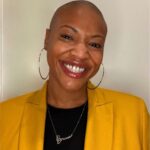
[Editor’s Note: In honor of International Women’s Day and Women’s History Month, PRNEWS took the time to chat with a few female industry leaders. We looked at the latest workplace issues and trends for women communicators, as well as strategies to rise above some of the difficulties female PR pros can face.
The roundtable included Becky Edwards, Chief Communications Officer at Organon, Tanya Meck, Partner and Managing Director at Global Strategy Group, Brennan Nevada Johnson, Founder and CEO of Brennan Nevada, Inc. and Lauren Reddington, Corporate Communications Manager for a government contractor.]
PRNEWS: What do you see as the current, most pressing issue for women in the PR industry?

Tanya Meck: Deep-rooted stereotypes about gender and leadership continue to affect women, despite the number of women in our industry. Is this person “decisive” or “aggressive?” Do they have “high standards” or are they “difficult” to work for?... These unconscious biases hold women back professionally, and can rob our clients of their ideas and talents.
Lauren Reddington: We need to see more women at the heads of the tables and in leadership roles in the industry... Unfortunately, imposter syndrome seems to rear its ugly head (speaking from personal experience) and all too often can hold people back (again, speaking from personal experience).

Becky Edwards: There are many issues that unduly impact women in the workplace and their ability to achieve their full potential. Women must give voice to these issues—which can include lack of availability of a pumping room for postpartum mothers or the need for flexibility when dealing with debilitating symptoms of menstruation. At Organon… we feel strongly about de-stigmatizing women’s health topics, like menopause…and we have implemented policies centered around supporting women throughout all phases of life—from a

bereavement policy that acknowledges miscarriage or stillbirth to expanding our Global Care Leave policy to include time off for menstruation, menopause, perimenopause, mental health and more.
Brennan Nevada Johnson: PR, especially tech PR, remains an industry that is dominated by white men. It's not diverse, everyone looks and thinks the same, and because of that women are not as motivated in their careers when amplifying offering PR services to "tech bros." Agencies have an obligation to improve how they

diversify their ranks and need to focus on hiring and most importantly, retaining, female talent.
PRNEWS: It’s noted that breaking through that glass ceiling takes some work. What strategies have you found effective in navigating male-dominated spaces within the PR industry?
Reddington: Whenever I’m in a meeting and doubt if an idea or suggestion I have is not substantial enough to vocalize, I remind myself I’m in this room for a reason, and my ideas have value. I’ve found myself scrutinizing an idea, wondering if it's too obvious, only to have a man in the room say the exact same thought. It happened enough that I decided to put a stop to this pattern, push away the self-doubt, and put my ideas out there more.
Meck: Just because someone doesn’t agree with you doesn’t mean your opinion or approach isn’t valid. Know your priorities and what you want to fight for, and let the other stuff go. Don’t take things personally.
Nevada Johnson: There are tons of female founded businesses that are looking for women storytellers to help amplify their mission and garner media exposure. I have relied on my incredible network to connect me with these founders who are usually… pointed to working with agencies that lack diversity and will ultimately fail at telling their stories effectively. I am also published on a number of [PR professional news] sites, so I think that the articles I've written around women in business and the need for diversity in a male-dominated industry have garnered great connections with female-owned businesses and especially BIPOC founders.
PRNEWS: And with remote work becoming prevalent, how has this shift impacted women in the PR industry?
Meck: In some ways it has become an equalizer. We all get the same Zoom or Teams box and take up the same real estate on a screen. In a remote meeting, it becomes even clearer when someone is monopolizing, and someone is getting left out. The seat at the proverbial table has been balanced—somewhat.
Reddington: As a military spouse, the shift to remote work has opened up more doors for myself and others in unique situations. I established my career long before meeting my husband, and I worried the frequent moves, a hallmark of military life, would hurt my career’s trajectory. Instead, I’ve seen how remote work is a plus and not a minus.
Nevada Johnson: Women deal with a lot. We are working mothers, caregivers in our households, and being forced to work in an office takes away from our obligations outside of work… The focus should be around supporting women in PR where they are at personally and professionally—an office environment is not the place that should determine how far women progress and the work that we contribute.
PRNEWS: The PR industry often requires professionals to be highly visible and accessible to clients and stakeholders. How do you balance the expectations of being constantly available with the need to set boundaries and prioritize your own well-being?
Meck: This is the hardest thing about our industry! I get up extra early to do what I want to do, whether that is going to the gym, going for a hike or drinking a cup of coffee on my porch. When something non-urgent comes through outside of work hours, most clients and colleagues appreciate a simple acknowledgement that you’ve received the request and a timeline for when you’ll get back to them. They rarely expect you to take care of it immediately. Know that… and act accordingly.
Nevada Johnson: I set boundaries and will not respond to inquiries after a certain hour. I have no problem firing or dropping a client if they continuously try to disregard how I work. No amount of money is ever worth your stress and being "on call" all the time. That's a recipe for disaster.
PRNEWS: The media landscape continues to evolve rapidly, with digital platforms playing an increasingly significant role. How can women PR professionals stay ahead of these changes and leverage new opportunities?
Reddington: I’ve always viewed digital platforms as amazing avenues to be creative in how we share stories and create and grow brands. I encourage women PR professionals to be early adopters for these platforms.
Download the app, learn the user interface, see how your clients’ audiences are using and engaging within the platform. Consider this research! You never know when you’ll be in a meeting and a client will ask your thoughts on the value of being on a certain platform—you will be able to share firsthand instead of saying you’ll get back to them on that. Look at what’s trending, see if there is a clever hook for your client, and brainstorm how this digital platform can serve them.
Lastly, let’s put the “social” back in social media! Get involved in PR communities across the platforms. You will learn, grow your network, and create more opportunities for yourself than you thought possible.
Nevada Johnson: It's also important to [remember] the [mission] of PR and how to best perform for your clients… A bunch of PR people rely on AI to do their jobs, and believe me, they are missing the mark. For one, most media outlets do not accept AI-generated content and journalists can tell right [away] if something was [created] with AI or not—which shows a lack of professionalism and creativity… I don't believe that AI will ever replace what I do.
